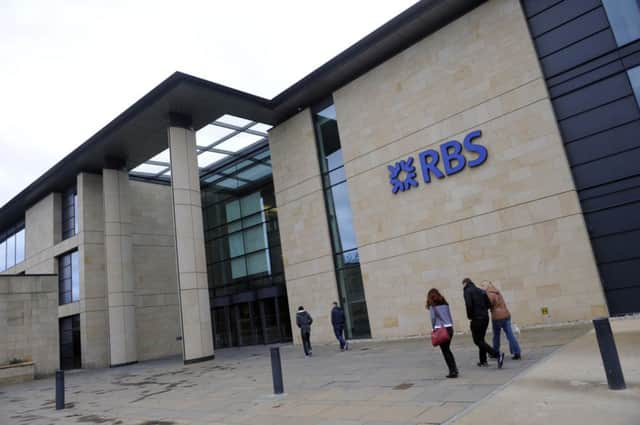COMMENT: RBS profits | Takeover time


Ulster Bank, as much as ABN Ambro, helped sink RBS at the time of the credit crunch, and has been the major leaking wound ever since.
RBS inherited sleepy UB almost as an afterthought, when it took over NatWest in 2000. While Fred Goodwin was preoccupied with acquisitions, the property market in the Republic went ballistic, egged on by low interest rates in the eurozone and the hubris of Dublin’s politicians. So UB hoovered up First Active, Ireland’s oldest building society, and started offering no-deposit, 100 per cent mortgages.
Advertisement
Hide AdAdvertisement
Hide AdWhen the crash came, RBS had to pump £10bn into Ulster Bank to cover improvident property loans. Ex-boss Stephen Hester was right when he noted: “For those who say investment banking lost all the money, the least wise decisions were property lending, of which Ireland was the worst.”
In 2012, Hester appointed an outsider to clean up UB – Jim Brown, a New Zealander with Asian banking experience.
When Hester was pushed out of RBS last year, he was replaced by another New Zealander, Ross McEwan. Injecting a dose of tough Antipodean common sense seems to have worked wonders for UB, which still boasts 1.9 million customers. McEwan, by the way, still runs a farm back home, which should give him some insight into Ireland beyond Dublin.
As a next step, McEwan and Brown are thinking about merging UB with another institution. Permanent TSB, or the Irish subsidiaries of Danske Bank or the Belgian KBC, have been mentioned. They also want private equity groups to inject cash into the venture, in return for a big stake. This might find support from the Irish government, which wants a new force to compete with the country’s biggest lenders – the duopoly of Allied Irish Bank and Bank of Ireland.
This week the Irish government was forced to announce a public inquiry into the 2008 banking crash, after two directors of the failed Anglo Irish Bank escaped jail despite being found guilty of illegal lending. Pat Whelan and Willie McAteer will do community service instead. The inquiry should make riveting television.
The Sky’s the limit for rows over advert sales
Lord “Tarzan” Heseltine has been preaching the need for tighter controls over foreign takeovers of British companies since long before the hostile Pfizer bid for AstraZeneca. Presently ministers only intervene in foreign takeovers in cases that affect national security, or when media ownership is involved; e.g. Viacom’s £450 million bid for Channel 5.
Curiously, few seem bothered by the Viacom deal despite its implications for Rupert Murdoch’s BSkyB. As well as selling pay-TV subscriptions, BSkyB has an ad sales operation, Sky Media. This generates more than £800m in TV ad spots, worth 21.5 per cent of the UK annual market. Viacom just happens to be Sky Media’s biggest customer.
If Viacom uses Sky Media to handle Channel 5’s ad sales (£330m a year), then Sky Media will control some 30 per cent of ad sales on UK television, putting it number two behind ITV’s sales house. Equally, if Viacom takes its business away from Sky Media, the latter has problems. Expect a row.